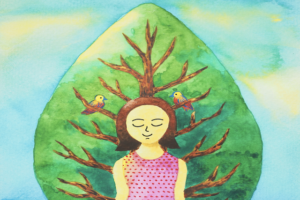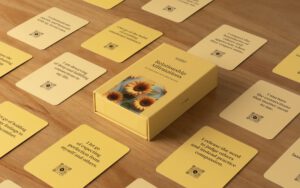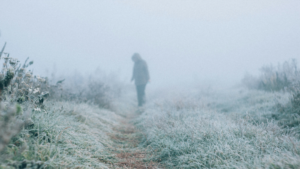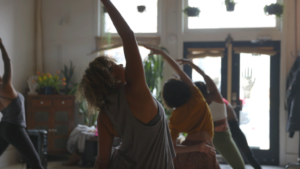Compassion Is Key to Our Survival
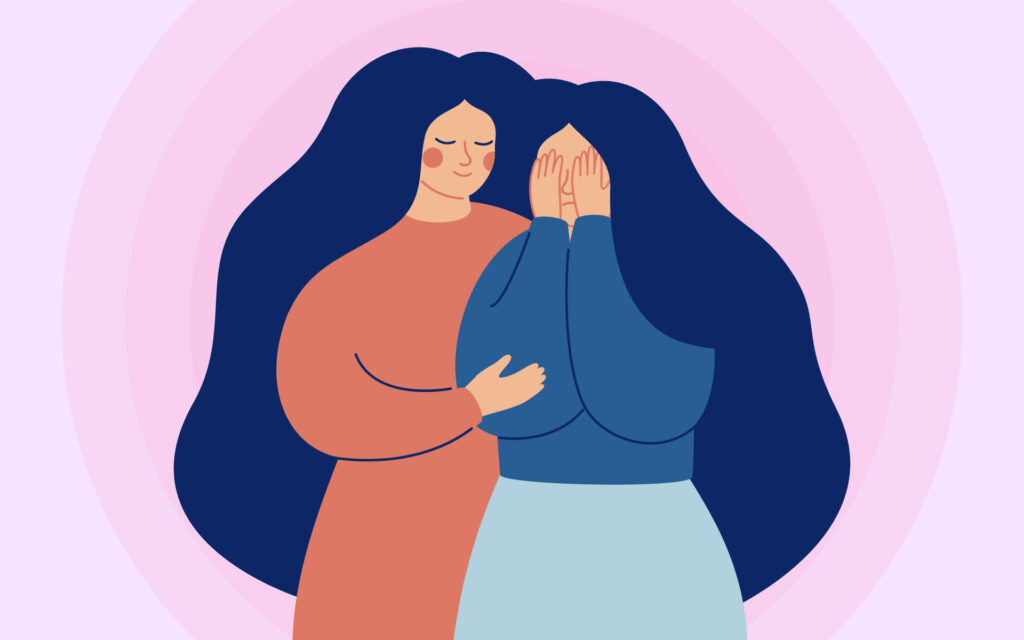
A enjoyable truth about hummingbirds is that they’re cautious of loud noises. Barking canine and loud music can scare the tiny creatures away as a result of they don’t really feel protected in noisy environments. Individuals reply to unsafe environments like hummingbirds. We keep away from conditions that don’t really feel protected, and after we discover ourselves in a single, we don’t keep lengthy. However right here’s the place individuals differ from hummingbirds: issues of safety can confuse us. Typically, we don’t acknowledge that the explanation we’re uncomfortable is as a result of we don’t really feel protected, and different instances we predict we really feel uncomfortable as a result of we’re not protected, though that’s not the explanation.
What do it is advisable to be protected and care for your self ? The reply will not be as easy because it appears. Security relies upon, no less than partially, on whom you’re with, the place you’re, and the way you’re feeling. Once I was in my twenties and thirties, residing in New York Metropolis alone, I recurrently assessed whether or not using the subway at a specific hour or in a sure neighborhood was protected. Later, residing in Los Angeles with younger kids, I made a judgment name on whether or not their climbing on the excessive bars of a rickety jungle fitness center was protected. After they obtained older, I balanced their want to be with buddies towards whether or not their driving an extended distance at evening was protected. As an empty nester, my focus shifted again to my husband Seth and me, and whether or not selections like getting a walk-up house relatively than one in an elevator constructing made sense since our skill to climb stairs carrying baggage or groceries would change as we grew older. The solutions to those questions hinged on bodily security and the percentages of somebody getting damage.
I don’t take into consideration security in such literal phrases anymore. I now see security as extra nuanced and acknowledge the ways in which my reactions spring from an evolutionary survival mechanism designed to maintain me alive to cross my genes on to future generations, relatively than essential considering. We’re hardwired for survival. Not one of the concepts or takeaways I describe are scary. Nonetheless, some may carry you outdoors your consolation zone and set off the survival mechanisms that run mechanically if you’re in bodily hazard.
After we really feel protected, we’re in our consolation zones, the place we carry out properly, set acceptable boundaries, relaxation, recharge, and mirror. It feels good after we’re in our consolation zones, however it’s not the place we take dangers or the place a lot development takes place. Improvement takes place after we’re on the far fringe of our consolation zones, stretching present expertise and skills. When a stretch is in attain, however we really feel unsafe anyway, considered one of our innate survival mechanisms can change into gear and shut us down. Then, a mechanism designed to guard us short-circuits our development and will get in the best way of reaching our targets. This tendency will be mitigated in a number of methods, however for now, I’ll point out one: kindness.
Way back to Charles Darwin, scientists, philosophers, artists, and poets have drawn a straight line between our warmhearted urge to answer struggling with kindness and the chance that we’ll survive, even thrive.
Way back to Charles Darwin, scientists, philosophers, artists, and poets have drawn a straight line between our warmhearted urge to answer struggling with kindness and the chance that we’ll survive, even thrive. To borrow from the preface of Dacher Keltner’s glorious guide, Born to Be Good: “[S]urvival of the kindest could also be simply as becoming an outline of our origins as survival of the fittest.”
Navigating Sorrow With Kindness
I used to be launched to the poem “Kindness” from Naomi Shihab Nye’s first poetry assortment once I heard it recited by Jon Kabat-Zinn, the founding father of Mindfulness-Primarily based Stress Discount (MBSR). Kabat-Zinn and his instructing associate Saki Santorelli (on the time, govt director of the Middle for Mindfulness on the College of Massachusetts medical college) had been worldwide rock stars within the secular mindfulness world, and I used to be primed to pay attention. It was early morning, halfway by a weeklong MBSR retreat/coaching within the late Nineteen Nineties on the Mount Madonna retreat middle in Northern California. Gentle streamed by the floor-to-ceiling home windows within the meditation corridor to backlight Kabat-Zinn, who was sitting cross-legged on a meditation cushion, up on a dais. The golden early morning gentle gave him and your entire session an otherworldly high quality. He recited the poem from reminiscence to a room filled with meditators sitting round him in a semicircle, most of whom had been additionally sitting cross-legged on cushions. One of many photographs within the poem stood out then and has remained with me since:
It’s essential to get up with sorrow.
It’s essential to converse to it until your voice
catches the thread of all sorrows
and also you see the dimensions of the fabric.
I’m struck by how usually I’ve remembered this picture of the enormity of sorrow on this planet since I first heard it. The phrase has come again to me when somebody I really like has fallen in poor health or has died and when the family members of individuals near me have struggled with sickness or loss of life. The scale of the fabric hit me at an excellent better stage of magnitude as I watched information protection of the Twin Towers coming down on 9/11 in New York Metropolis. The scale of the fabric was nearly unimaginable once I noticed footage of the refrigerated trailers parked in entrance of hospitals in New York Metropolis functioning as short-term morgues throughout the early days of the pandemic. Possibly the theme of Shihab Nye’s poem that “it’s solely kindness that is smart anymore” resonated with me as a result of it echoed rabbinic sage Hillel the Elder’s name to motion: “If not now, when? If not me, who?”
Discomfort is a technique our our bodies ask us to pay attention.
Scientists have lengthy suspected that kindness in response to different individuals’s ache is a survival mechanism that’s wired into our nervous methods. What’s usually more durable for individuals to recollect is that kindness in response to our personal sorrow can also be a survival mechanism. For many people, being form to ourselves is extra of a leap than being form to others. It was for me. I assumed kindness was the Golden Rule we train younger kids—do unto others as you’ll have them do unto you. It didn’t happen to me to use the Golden Rule to myself. I needed to be mom, associate with Seth in offering for our household, and to make a distinction on this planet. I used to be one of many fortunate ones and needed to pay it ahead. There was no room for me to take it simple. The more durable I attempted to do good and be good, the extra of a toll it took on me. Nonetheless, it didn’t register that the tempo at which I used to be working was unkind to my household and me. I needed to burn myself out emotionally and bodily just a few instances earlier than I may internalize the commonsense reality that discomfort is a technique our our bodies ask us to pay attention. Simply because it took me some time to develop a extra nuanced stance towards security, it took me time to undertake a extra expansive thought of kindness that included being form to myself.
Exploring What Security and Kindness Really feel Like
The next practices and activity-based takeaways are designed so that you can combine into every day life simply. Doing them shouldn’t be a heavy elevate and tax you, however generally, mindfulness and meditation carry up massive emotions which are painful to confront. Please be form to your self. Take a break if you happen to really feel overwhelmed or if discomfort turns into an excessive amount of to handle simply. Time is your pal in relation to internal discovery, and you’ve got loads of room to permit the method to unfold at its personal tempo.
Observe: Mirror on What You Must Really feel Protected
Figuring out your security wants and factoring them into your selections are a significant and efficient technique to be form to your self. Ask your self, “What do I have to really feel protected?” “Are my security wants being met?” “How?” In the event that they aren’t being met, “Why not?” Do not forget that whether or not you’re feeling protected depends upon varied components, together with if you happen to’re drained, hungry, or harassed. When security and inclusion wants are unacknowledged and unmet, our nervous methods are ripe to change into hijacked by considered one of our innate survival mechanisms.
Reflecting on security wants can appear to be a waste of time. If you’re in your consolation zone, it’s simple to overlook the purpose of what it takes to really feel protected. Right here’s why it is best to do it anyway: For those who determine your security wants up entrance, whilst you’re in your consolation zone, you possibly can higher care for your self later when you’re outdoors of it.
- Discover a comfy place the place you gained’t be interrupted. Shut your eyes or softly gaze forward or downward.
- Just a few breaths later, pay attention for the loudest sound. When you find yourself prepared, pay attention for the quietest sound. Don’t chase a sound that’s laborious to listen to; calm down and let it come to you. Let your thoughts be open and relaxation in the entire soundscape.
- Ask your self, “What does it take to really feel protected and welcome in a brand new state of affairs?” Maintain the query in thoughts and hearken to the solutions that emerge.
- If you’re prepared, open your eyes if they’re closed and jot down your insights.
- Then, draw three concentric circles on a clean piece of paper. Prioritize your insights by writing an important ones within the internal circle. Write these which are the least essential within the outer circle. Write what’s left in your checklist within the circle in between. All of your insights matter, however doublecheck to make sure the important gadgets are within the internal circle.
- Overview the diagram and take into account methods to extend the percentages that, in a brand new state of affairs, you’ll really feel protected and included.
Takeaway: How may connecting with playfulness, consideration, stability, and compassion allow you to really feel safer and extra welcome?
Observe: Let Your self Be Immersed in Self-Compassion
All through our evolutionary historical past, people have relied on kindness to outlive. Sturdy social bonds, efficient communication, and significant collaboration create a supportive exterior setting that enables us to thrive in various conditions and overcome challenges. Equally, we create a supportive inside setting after we are form to ourselves, one the place we change into extra emotionally resilient. Kindness is a self-reinforcing habits. By being form to ourselves, we are able to higher assist and take care of these round us. By being form to others, we construct belief, strengthen relationships, and create a way of social assist and belonging that helps us deal with stress and navigate adversity.
I first realized concerning the following self-compassion observe studying Zen priest Edward Espe Brown’s guide No Recipe: Cooking as a Religious Observe the place he writes: “[I]n the early ’80s, when Thich Nhat Hanh was giving a chat previous to departing from the San Francisco Zen Middle the place I used to be residing, he stated he had a goodbye current for us. We may, he stated, open and use it anytime, and if we didn’t discover it helpful, we may merely set it apart. Then he proceeded to clarify that, ‘As you inhale, let your coronary heart fill with compassion, and as you exhale, pour the compassion over your head.’”
- Think about you’re in a sweltering however lovely jungle, holding a coconut shell in a single hand. Can you’re feeling the tough shell towards the palm of your hand? Image a picket barrel crammed with cool rainwater on the bottom subsequent to you. Are you able to see your reflection within the glowing water?
- Think about the rainwater is a nectar of compassion that soothes busy minds and large emotions. As you breathe in, think about filling the coconut shell with compassionate rainwater. As you breathe out, think about pouring the nectar of compassion over the crown of your head.
- Let go of the photographs of the bucket and coconut shell to concentrate on sensation. Think about what it could really feel like for a nectar of compassion to scrub over you and soothe your physique from head to toe.
- Beginning on the crown of your head, really feel the compassion rinse slowly over your face and head, then over your neck, shoulders, chest, higher arms, decrease arms, and arms.
- Transfer your consideration to your torso and picture feeling a nectar of compassion wash slowly over your torso, pelvis, higher legs, knees, decrease legs, and toes.
- If you’re prepared, flippantly relaxation your consideration in your outbreath. If ideas and feelings come up, don’t battle them. With no purpose or goal, permit your thoughts to be open and relaxation.
Takeaway: Discover no less than one technique to be form to your self immediately, then see if there’s a ripple impact.
From Actual-World Enlightenment: Discovering Strange Magic in On a regular basis Life by Susan Kaiser Greenland © 2024 by S. Greenland, Inc. Reprinted in association with Shambhala Publications, Inc. Boulder, CO. www.shambhala.com


